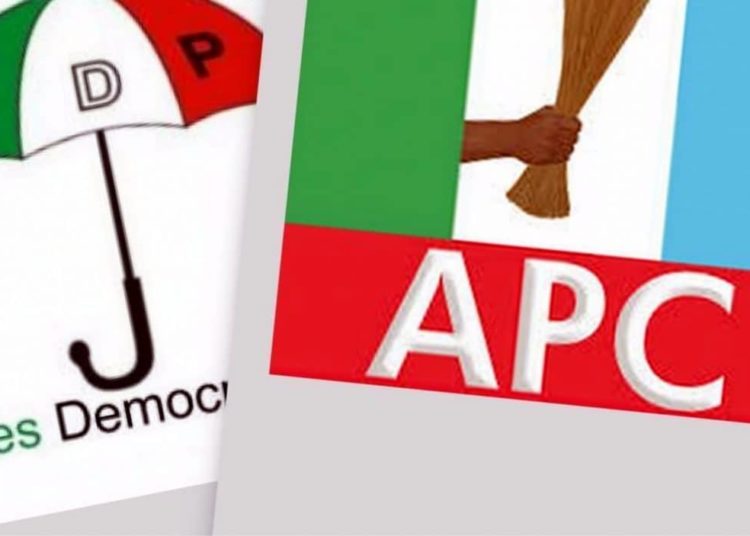It is the period of primary election in the country ahead of the 2023 general election and aspirants to elective offices are going round the county wooing party delegates to choose them from among other aspirants as candidates of their parties in the coming polls.
Disturbingly, the public space is awash with reports that the parties involved – the aspirants, the party leadership and delegates – have turned this very important exercise of leadership selection into a charade of buying and selling of votes. Aspirants, desperate to win the intra-party elections, are said to be trying to outdo one another in doling out huge sums of money to delegates – especially in the major political parties – in order to vote them as candidates of the party in the various offices into which elections would be conducted.
In the last few days during which primary elections were held for candidates into the state and federal legislative houses, governorship positions and presidency, there are hilarious reports of losing aspirants demanding the refund of bribe-money from delegates. It would have been funny if it were not tragic for a nation in search of democratic ideals.
Recently, too, two major aspirants of a major political party withdrew from the race citing the issue of vote-buying, with one complaining that the whole exercise had been obscenely monetised, while the other had all along said he was not going to bribe delegates, even alleging that some of his rivals were sharing bribes in dollars.
The noise of the monetisation of the process was so loud in the public space that the nation’s anti-graft agency, the Economic and Financial Crimes Commission (EFCC), deployed its personnel to the venue of the Peoples Democracy Party (PDP) convention in Abuja. In its explanation of its action, the EFCC said its operatives were at the MKO Abiola Stadium, Abuja venue of the PDP presidential primary at the weekend “to monitor the exercise and, most especially, check delegates inducement and other financial malpractices.”
As a newspaper, we commend the EFCC for trying to check vote buying;. However, the commission needs to be more proactive and strategic than the action it has taken. It is not likely the bribe money will be shared at the venue of the primary election. Its operatives should be monitoring the bank transactions of aspirants and delegates in the weeks leading up to the convention. They can also summon all the delegates and rigorously interrogate them to establish which among the delegates and aspirants have fallen foul of the law against voter inducement with a view to instituting charges against them.
More importantly, we are concerned that both the aspirants and the delegates seem to have a completely erroneous idea of what primary election entails. By aspirants seeing it as the contest of who has the bigger pockets and delegates seeing their positions as a means to make a fortune in the political season, the polity is denied the opportunity of having campaigns based on robust debates about how each aspirant perceives the challenges facing the society and how they hope to tackle them.
It is how original and convincing the arguments and solutions proffered by the aspirants are that party delegates will consider to see whether they can be sold to the voting public to choose the party’s candidates at the general poll.
The aspirants should be telling the delegates how they intend to solve problems of widespread insecurity across Nigeria; how to rescue 100 million Nigerians from the curse of poverty, massive unemployment and underemployment; how they intend to revamp education and healthcare in Nigeria; how to turn around the economy from import-dependent to self-sufficiency and export-driven; how they intend to tackle the ecological challenges of flooding, desert encroachment and depletion of the Lake Chad and their associated economic and security challenges; how they intend to deal with official corruption and cut down on wasteful governance, among others. The list is long but certainly not exhaustive.
Unfortunately, in the exercise that is going on, much of the debates in the major political parties are shallow and emphasis is on how to share money and promote regional interests. Across political parties only few aspirants are really speaking to the challenges of the nation; most are caught up in the desperation to win elections at all costs to achieve political and financial ends.
As a newspaper, we deplore this resort by politicians to reduce the important task of leadership recruitment to a matter of the highest bidder. Nigeria should not be for sale.
We also urge the anti-graft, intelligence and security agencies to scrupulously track campaign spending to ensure that politicians holding public offices do not loot the treasury to buy votes.
Voter inducement is a danger to our nascent democracy, because it undermines the greatest attribute of democracy – freedom of choice. So those caught in this reprehensible act should be exposed and made to face the full weight of the law to act as a deterrent to others.
We’ve got the edge. Get real-time reports, breaking scoops, and exclusive angles delivered straight to your phone. Don’t settle for stale news. Join LEADERSHIP NEWS on WhatsApp for 24/7 updates →
Join Our WhatsApp Channel










